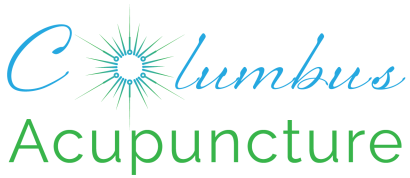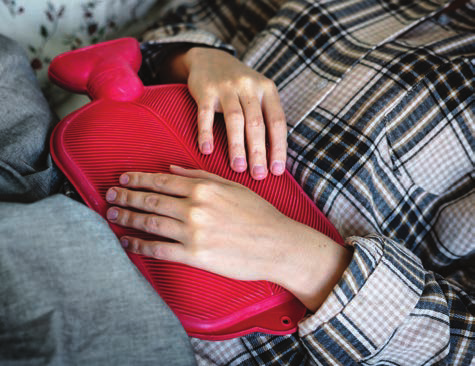
2520 California St, Ste G
Columbus, IN 47201(812) 374-4518
- Monday9am-4pmTuesday9am-5pmWednesdayclosedThursday9am-5pmFriday9am-5pmSatclosedSunclosed
-
Latest Articles:
- • Energy-Saving and Safety Tips for Winter Proofing Your Home •
- • Winter Wellness: Mental Health Tips for Beating the Winter Blues •
- • 10 Cozy Winter Activities to Enjoy Indoors •
- Sign up to receive news and updates and get my free report:“The Top 10 Reasons to Try Acupuncture”

Uncategorized
Acupuncture Research: Chronic Pain
 In May 2018, a team of researchers from the Acupuncture Trialists Collaboration published an update to previous chronic pain research in the Journal of Pain, the journal associated with the American Pain Society. The new article updates a study first released in 2008 that looked at acupuncture as a treatment for four chronic pain conditions. The updated study now includes data from nearly 21,000 patients.
In May 2018, a team of researchers from the Acupuncture Trialists Collaboration published an update to previous chronic pain research in the Journal of Pain, the journal associated with the American Pain Society. The new article updates a study first released in 2008 that looked at acupuncture as a treatment for four chronic pain conditions. The updated study now includes data from nearly 21,000 patients.
The new study confirms what was shown in the researchers’ previous work: acupuncture relieved pain and improved function when compared with sham acupuncture and not receiving any acupuncture. The researchers also showed that the effects persisted over at least a 12-month period. This study adds to the body of literature that suggests acupuncture can be a viable treatment for chronic pain, and the findings cannot be explained solely by placebo effects since they did not observe significant changes in the group that received sham acupuncture.
Chronic pain affects approximately 50 million Americans or just over 20 percent of the adult population, according to a study from the Center for Disease Control released in September 2018. That statistic, when combined with the growing opioid epidemic in the United States led one of the country’s largest health-insurance providers, Blue Cross Blue Shield, to start covering acupuncture as an alternative to opioids. The change went into effect January 1, 2019.
Acupuncture relieves pain by releasing endorphins, the body’s natural pain-killing chemicals, at the acupoints in which the needles are inserted. Licensed acupuncturists can access the specific areas of their patients’ bodies that are causing them pain by inserting needles at acupoints connected to those painful areas. Acupuncture may also help relieve pain by affecting the area of the brain that governs serotonin, a chemical in the brain involved in regulating our moods.
According to Traditional Chinese Medicine (TCM), acupuncture meridian points activate the body’s innate healing abilities acupuncturists call Qi (chee). According to TCM, Qi is the vital energy that animates the body and protects it from illness. Qi flows through pathways called meridians and provides nourishment to the body’s cells, tissues, muscles, organs, and glands. When there is an imbalance or blockage in the flow of Qi, symptoms such as chronic pain may appear.
If you or someone you know suffers from chronic pain, suffer no more! Contact a licensed acupuncturist in your area to learn how they may be able to help you find relief in an all-natural way with no risk of harmful side effects.
https://www.painnewsnetwork.org/stories/2018/9/13/cdc-50-million–americans–have–chronic–pain
http://americanpainsociety.org/education/e–news/2018/may/summaries
https://dailymemphian.com/article/2059/BlueCross–removes–Oxycontin–adds–acupuncture–amid–opioid–crisis
Potent Organs in Spring Time
Spring is generally regarded as a happy season, especially for those that live in areas where winter is cold and dark. Spring brings with it longer, warmer days, more sunshine, the rebirth of plants and more activity. But for many, the months of spring can also bring irritability, anxiety, sinus issues, allergy flare-ups and colds.

Traditional Chinese Medicine (TCM) has been around for nearly 3,000 years, which gives the medical system, as a whole, a lot of credibility. TCM classifies things in many different ways. There are five seasonal associations in TCM – winter, spring, summer, late summer and fall. Each season has its own unique set of properties and associations. Spring is associated with the wood element. The wood element governs the liver and the gallbladder and their energetic pathways. The five seasons and their corresponding elements interact with one another daily, creating balance and harmony or complete chaos within the body.
Spring is a time of growth, which is evident by all the plants and flowers coming into bloom, as well as the wildlife awakening from winter slumber. Spring is the time of birth and regeneration. This season tends to be trademarked by optimism and opportunity.
Spring is linked to the wood element in TCM due to the prospects of growth and development. When a tree is nourished properly, it will grow and expand. This is very similar to what happens with the body and spirit within every living being. Just like the wood that makes up the trunk of the tree, we must be able to be flexible and bend, always changing and adapting to whatever comes our way. We need to remain strong and rooted, yet be able to give a little if needed.
According to TCM theory, the liver and gallbladder are associated with the tendons and are responsible for the smooth flow of energy and blood throughout the body. Our daily activities should reflect this. Being more active and spending more time outside can be great ways to strengthen the liver and gallbladder energies during the months of spring. Fresh air helps the liver and gallbladder function properly and decreases any stagnation being experienced in the body. We should imitate the budding trees and flowers and allow ourselves to grow and reach for bigger and better goals during the spring.
Green is the color of spring in TCM. During these months, fresh greens are abundant. It is highly recommended that we incorporate more fresh greens into our daily diets. Greens have been shown to be very beneficial for helping the liver detoxify the blood. Dandelion greens, in particular, are a good source for detoxification, which ultimately strengthens the liver and gallbladder meridians.
Sour drinks and foods are believed to stimulate the liver’s healing abilities. Adding lemon slices in your drinking water or using vinegar and oil as a salad dressing are some good examples. However, if you are a person that has anger issues, sour tastes should be avoided, as this can send the liver into overdrive.
It is also recommended to avoid excessive stimulants during the spring months. Things like coffee are considered expansive and energizing, which can be somewhat helpful during the cold winter months. But during the spring, when life is abounding, excess energy can actually be harmful to the body. It can create headaches, insomnia, anger and more.
As with any seasonal change, adding acupuncture treatments can be a huge asset, but especially in the transition from winter to spring. Due to the winds picking up and the weather becoming warmer, things like bell’s palsy, allergies or sinus infections can become more prevalent. Using acupuncture as preventive medicine can vastly improve your chances of remaining healthy throughout the transition. So for the sake of your liver and your overall health, be sure to connect with a locally licensed acupuncturist today. You won’t regret it.
Research Update – Acupuncture and the Liver
 A study published in the European Journal of Integrative Medicine looked at how acupuncture might be able to inhibit injury to the liver caused by the prescription combination of morphine and acetaminophen. The study was conducted on rats that had been fed morphine and acetaminophen. Then, acupuncture was applied once daily to the rats. The researchers discovered the rats who received acupuncture also had less damage to their livers. This occurs because of the antioxidant-stimulating effects of acupuncture treatments. The researchers concluded acupuncture may provide a safe alternative detox method for people chronically taking morphine or acetaminophen.
A study published in the European Journal of Integrative Medicine looked at how acupuncture might be able to inhibit injury to the liver caused by the prescription combination of morphine and acetaminophen. The study was conducted on rats that had been fed morphine and acetaminophen. Then, acupuncture was applied once daily to the rats. The researchers discovered the rats who received acupuncture also had less damage to their livers. This occurs because of the antioxidant-stimulating effects of acupuncture treatments. The researchers concluded acupuncture may provide a safe alternative detox method for people chronically taking morphine or acetaminophen.
Traditional Chinese Medicine, a medical system that has been around for thousands of years, views the human body quite differently from Western medicine. In Traditional Chinese Medicine (TCM), there are energetic pathways are associated with specific organs in the body. When these pathways, or meridians, and the energy flowing through them, are out of balance, then the body may become diseased.
In TCM, the liver and its corresponding pathway are responsible for the smooth flow of qi (pronounced “chee”) or energy, blood and emotions. The liver is easily affected by excess stress and uncontrolled emotions. The liver is paired with the gallbladder and the two work very closely as a unit. When one is imbalanced, the other may display the symptoms. For example, if a person is consistently stressed, this may cause the liver energy to become blocked. When this happens, the gallbladder may become affected. It is not uncommon for people in high stress jobs to end up with gallstones. The liver becomes blocked and the emotions remain bottled up inside, which then manifests in pain and possibly stones.
Anger is the emotion commonly associated with the liver and gallbladder. If a person gets angered easily, frequently feels frustrated, has difficulty relaxing or letting things go, and is unreasonable, it is safe to guess their liver energy isn’t flowing smoothly. There are many methods of balancing liver energy and returning proper flow throughout the body. Learning to stay calm and channel one’s anger appropriately is a good place to start. Practice some deep breathing, meditation, yoga or even take a walk. All of these things are great for balancing stagnant liver energy.
Another way to smooth liver energy is a technique known as dry brushing. Using a hairbrush with rounded bristles or a soft bristle brush, one can lightly brush down along the liver energetic meridian, which runs along the inner thighs and inner calves, all the way down to the inside corner of the big toe. This can be done for about five minutes per leg. Dry brushing gently stimulates the liver meridian, allowing the blood and energy to flow more freely and relaxing not only the liver, but the whole body.
Acupuncture is another great way to balance the liver energies. Regular acupuncture treatments help balance the body holistically and without any real side effects. Acupuncture can increase the flow of energy throughout the body, remove blockages and stagnation and allow the liver to function properly, which will ultimately allow the body to detox more effectively.
If you deal with anger, stress or have a history of gallstones, it might be a good idea to give acupuncture a try. Be sure to find a fully licensed and properly trained acupuncturist who can help guide you through balancing the energy of the liver meridian. Over time, your body will most likely respond favorably.
https://www.sciencedirect.com/science/article/abs/pii/S187638201530072X
Research Update: Acupuncture and postoperative nausea and vomiting
 Postoperative nausea and vomiting, often caused by the body’s response to anesthesia, is a very common symptom. Depending on the severity, this can prolong a patient’s recovery time and the length of their hospital stay as well as cause complications to the surgery depending on the type and extent of nutrient-depletion caused by the vomiting.
Postoperative nausea and vomiting, often caused by the body’s response to anesthesia, is a very common symptom. Depending on the severity, this can prolong a patient’s recovery time and the length of their hospital stay as well as cause complications to the surgery depending on the type and extent of nutrient-depletion caused by the vomiting.
Medications aimed at treating nausea are expensive and can cause side effects of their own, but a growing body of research is showing acupuncture can be an effective alternative.
A 2013 report published in the Public Library of Sciences measured the efficacy of acupuncture in treating postoperative nausea and vomiting by statistically analyzing the results from over 1200 patients. Acupuncture was determined to be a safe, efficient and economic prevention and treatment method.
In 2017, a study published by the National Institutes of Health looked at the effectiveness of the specific acupuncture point, P6, in treating postoperative nausea and vomiting for women after gynecological surgeries. In the study, 47 women were given a wristband that applied pressure to P6 during the first 12 hours after their operation. Fifty other women, the control group, were given traditional nausea medication during and after their operation.
The study found the wristbands were effective in preventing vomiting, and even more effective in significantly reducing the intensity of the nausea the women experienced. The researchers concluded wristband P6 acupressure application is an excellent alternative to pharmaceutical methods of treatment.
Other studies have shown acupuncture is effective in treating nausea caused by chemotherapy, gag-reflexes induced during dental work that can limit the ability of dentists to provide care, and morning sickness during the beginning of a woman’s pregnancy term.
Acupuncture and acupressure are natural methods of treating nausea, allowing people to limit the amount of pharmaceuticals entering their system, which can be especially beneficial in the case of postoperative care or chemotherapy, where the body is already being bombarded with synthetic drugs. With acupuncture, patients can avoid complicating their health by introducing further side effects that can arise from synthetic drug use.
Acupuncture can also be done in conjunction with Western treatments, which can reduce the dosage of pharmaceuticals a patient needs and provide even better overall results. Acupuncture is also often used as part of a multifaceted treatment plan that can include Chinese herbal tonics and exercise or movement plans. Traditional Chinese Medicine, TCM, often employs these three practices together to get the best results. Traditional Chinese medical thought looks at the body holistically, and therefore addresses ailments holistically, treating the root problem instead of just the presenting symptoms.
By learning more about the uses and availability of acupuncture, you can make personalized decisions about your healthcare should you find yourself in one of these circumstances. If you would like to learn more, or to seek treatment for yourself or a loved one, contact a licensed acupuncturist in your region.
https://www.healthcmi.com/Acupuncture–Continuing–Education–News/1742-acupuncture–beats–drug–for–indigestion–relief
Research Update: Acupuncture and IBS
 In a 2014 study published in the World Journal of Gastroenterology, researchers conducted a meta-analysis of six randomized, placebo-controlled, clinical trials and found acupuncture had a statistically significant, positive effect on IBS symptoms. The study found acupuncture was helpful in alleviating a variety of symptoms, including abdominal pain, stool state, and abdominal distention, among others.
In a 2014 study published in the World Journal of Gastroenterology, researchers conducted a meta-analysis of six randomized, placebo-controlled, clinical trials and found acupuncture had a statistically significant, positive effect on IBS symptoms. The study found acupuncture was helpful in alleviating a variety of symptoms, including abdominal pain, stool state, and abdominal distention, among others.
Between 25 and 45 million people suffer from irritable bowel syndrome, IBS, in the United States. Symptoms of IBS vary from person to person, but IBS is commonly characterized by intestinal pain and either diarrhea or constipation. Symptoms also vary from moderate to severe, but either way, the discomfort needs to be managed long term.
The cause of IBS is not completely known, but one hypothesis suggests it has to do with a disruption of neurotransmission between the intestines and the central nervous system.
Along with diet and lifestyle changes to manage the symptoms, some people turn to medication for support. Systematic reviews of IBS medication have shown inconsistent success, and no one drug has been found to treat all the symptoms of IBS. In light of ineffective and expensive medications, many people have started turning to acupuncture in order to address the symptoms of IBS.
Digestive disturbances are often related to inflammation of some kind, which is one of the conditions acupuncture has been proven to address very well. There are also acupuncture points specifically related to metabolism, increasing gastrointestinal muscle contraction and relaxation, reducing gastric acid secretion, regulating large intestine function and balancing stomach acidity, all of which can support balanced digestive function and support patients with IBS.
Digestive disturbances are also often related to chronic stress in a person’s life. Many acupuncture points are related to reducing stress in the body.
Lastly, digestive disturbance is also linked to people’s diet and nutrient deficiencies in the body. Traditional Chinese Medicine, or TCM, is the medical umbrella under which acupuncture falls. TCM treatments are often a combination of acupuncture, herbal tonics and exercise or movement. Chinese herbs can balance out many nutrient-deficiencies a person might be experiencing that can exacerbate IBS. TCM is a holistic philosophy that incorporates symptom relief as well as lifestyle and diet considerations to develop a well-rounded, personalized treatment plan.
IBS can be a debilitating condition, but it doesn’t have to be. Acupuncture and Chinese herbs can be a great alternative for managing the symptoms. If you or a loved one struggles with IBS, contact a licenced acupuncturist in your area to learn how they may be able to help you find relief.


